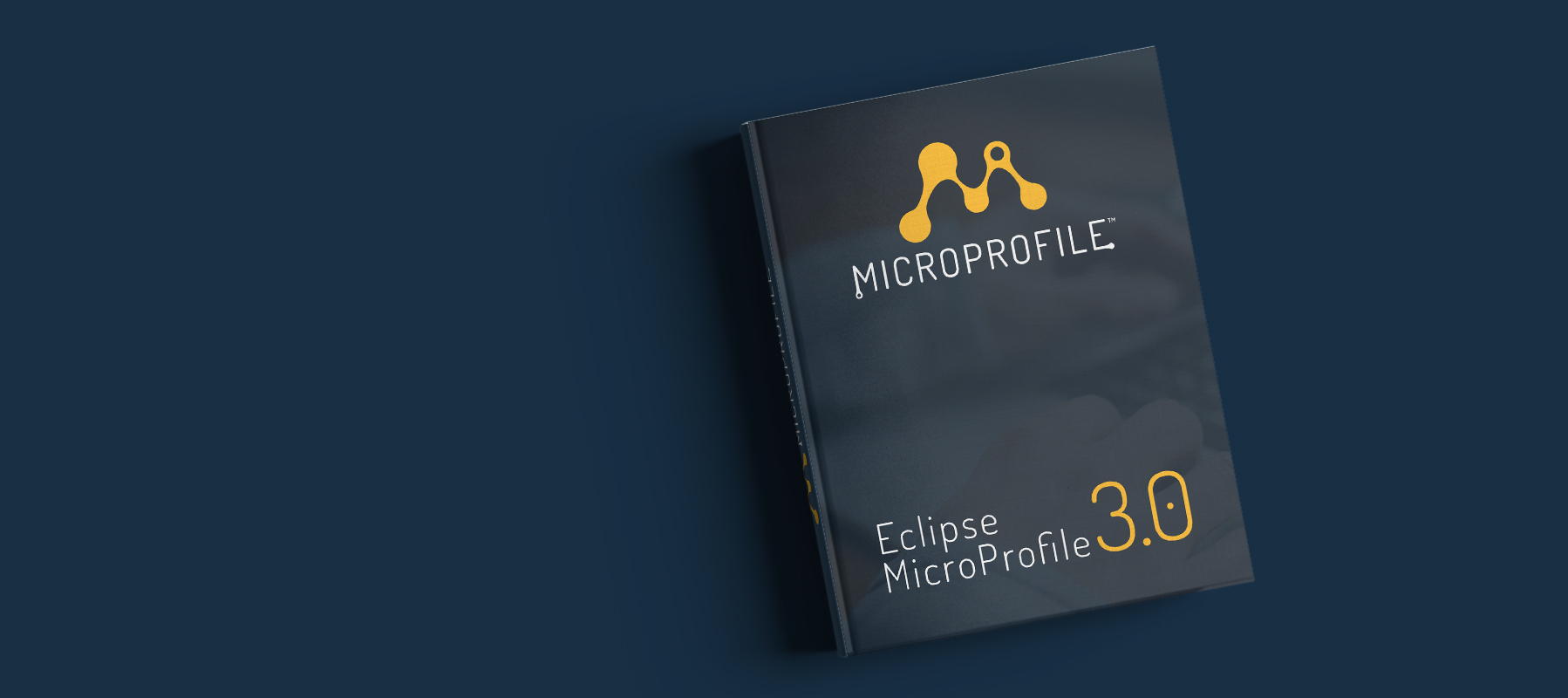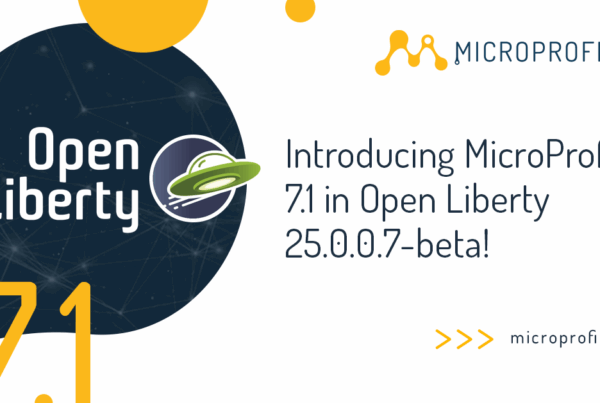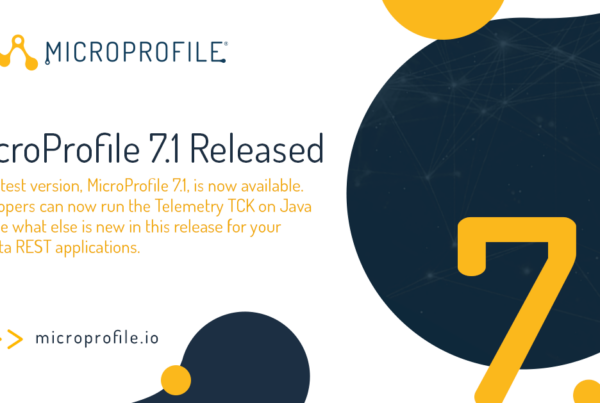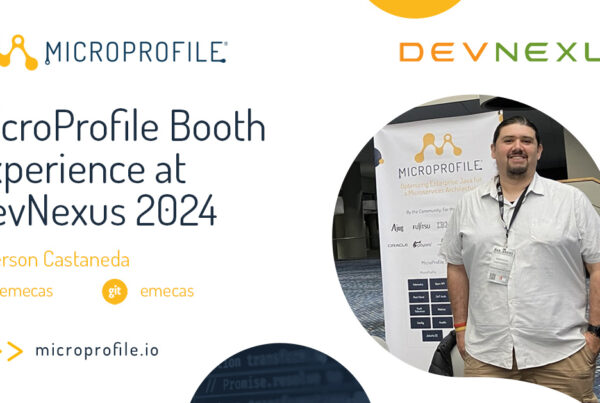Eclipse MicroProfile 3.0 is Now Available
Eclipse MicroProfile, an open forum to collaborate on enterprise Java microservices, would like to announce the release of Eclipse MicroProfile 3.0.
Eclipse MicroProfile 3.0, which builds on the 2.2 version, updates the Rest Client, Metrics, and Health Check APIs, the last two introducing breaking API changes, i.e. changes that are not backward compatible. This means that if you would like to upgrade from a previous release, you may need to make source code changes to your applications. If the changes introduced by Eclipse MicroProfile 3.0 cause an issue with your applications, you may want to consider staying on Eclipse MicroProfile 2.2. Like its previous version, MicroProfile 3.0 continues to align itself with Java EE 8 as the foundational programming model for the development of Java microservices.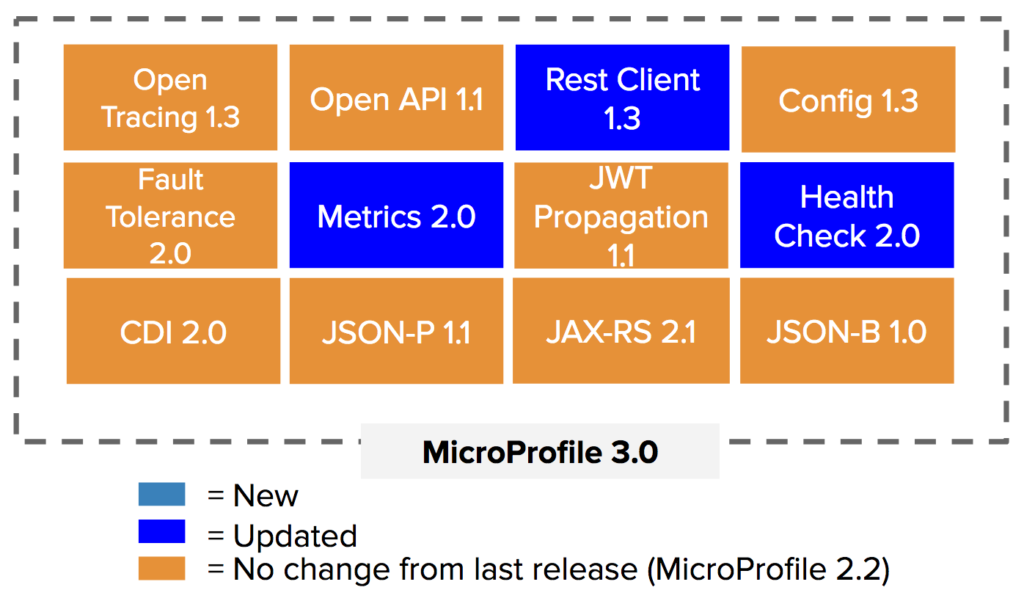
- The picture above shows the three APIs that were updated as part of the Eclipse MicroProfile 3.0 release.
- MicroProfile Rest Client 1.3 introduces the simplification of the configuration of multiple client interfaces, support for SSL configuration, resource cleanup after use, and media type defaulting when none is specified.
- MicroProfile Metrics 2.0 includes breaking API changes related to the refactoring of counters, i.e. all counters are now monotonic and the old non-monotonic counters are now ConcurrentGauges. In addition, it introduces support for the OpenMetrics format (formerly called Prometheus format), removes unnecessary annotations and deprecated methods, and improves the identification of specific metrics.
- MicroProfile Health Check 2.0 introduces breaking API changes in that it has modified the body of the Health Check response. In addition, it adds support for @Liveness and @Readiness health check annotations for container orchestration solutions like Kubernetes, deprecates some annotations, and it has enhanced and cleaned up its Test Compatibility Kit (TCK) and its JSON schema, among others.
Benefits of MicroProfile 3.0 are:
- Continued alignment with Java EE 8 feature subset
- A richer feature set for Health Check, Metrics, and Rest Client
- Additional features offering more functionality for implementing enterprise Java microservices
- Specification clarifications and documentation enhancements
- Richer integration between MicroProfile APIs
- All these APIs offer CDI-based and programmatic easy-to-use interfaces
- Interoperability across different MicroProfile implementations provides users the freedom to select one or combine many MicroProfile implementations in an application
- A thorough set of artifacts for each API, including a Test Compatibility Kit (TCK), Javadoc, PDF document for download, API Maven artifact coordinates, Git tag, and downloads (spec and source code)
Eclipse MicroProfile continues to deliver additional value on a regular basis and to successfully evolve with the dynamic involvement of all its community contributors. For example, the start.microprofile.io project is planning to introduce a command-line interface (CLI) that will make it easier to call it programmatically and create extensions for Integrated Developer Environments (IDEs). In addition, the MicroProfile Reactive Messaging project is planning to release a v1.0 standalone specification outside the core platform release, continuing to evolve the MicroProfile reactive paradigm. Likewise, the MicroProfile Boost project has been added to the MicroProfile sandbox for further analysis and evaluation by the community.
Future releases of Eclipse MicroProfile will update existing APIs and/or add new ones. For instance, the following topics are currently under active discussion and may appear in future MicroProfile platform releases:
- Updates to existing Components such as Config and OpenAPI
- Long Running Actions
- GraphQL
- Context Propagation
- Boost
- Reactive Relational Database Access
- Event Data
- Service meshes
Eclipse MicroProfile continues to forge ahead enabling enterprise Java microservices development for Java developers. Whether you’re a coder, end user, designer, or writer and are interested in MicroProfile, we encourage you to join our community members in developing existing specifications, helping with R&D on relevant topics, or even forming a group to cover some innovating new ideas!
For more information on MicroProfile, please visit:
To get your projects kick-started with MicroProfile, please visit:
To get involved in the MicroProfile community, please join our Forum:
For more information on MicroProfile 3.0, please refer to:
For MicroProfile roadmap and upcoming release trains, please go to:
